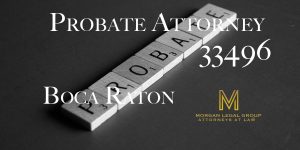Avoiding the Probate Process: Strategies for Efficient Estate Planning
Introduction
The probate process, which involves court-supervised distribution of deceased assets, can be time-consuming, costly, and public. Many people seek ways to avoid probate to streamline the transfer of assets to their beneficiaries and maintain privacy. In this comprehensive guide, we’ll explore strategies for efficient estate planning to help you minimize or avoid the probate process altogether.
Understanding Probate
Before delving into probate avoidance strategies, it’s essential to understand what probate entails and why some individuals prefer to avoid it.
What Is Probate?
Probate is the legal process through which a deceased person’s assets are distributed to their beneficiaries or heirs. The court supervises this process and typically involves:
- Validating the deceased’s will (if one exists)
- Identifying and appraising assets
- Settling debts and taxes
- Distributing assets to beneficiaries
Probate can be a lengthy and costly procedure, becoming a matter of public record and potentially compromising privacy.
Reasons to Avoid Probate
Several reasons drive individuals to explore probate avoidance strategies:
1. Time and Cost
Probate can take several months or even years to complete, delaying the distribution of assets to beneficiaries. The associated court fees and legal expenses can also substantially reduce the estate’s overall value.
2. Privacy
Probate is a public process, meaning that anyone can access information about the deceased’s assets, debts, and beneficiaries. Many people prefer to keep their financial affairs private.
3. Control
Probate proceedings are subject to court supervision, which means that the court oversees the distribution of assets. This can limit the control beneficiaries have over their inheritances.
4. Complexity
Complex estates, especially those with assets in multiple states, can face even more extended and complicated probate processes.
Strategies for Avoiding Probate
Now that we’ve established why avoiding probate can be desirable let’s explore several strategies that can help you achieve this goal:
1. **Living Trusts**
A living trust allows you to transfer ownership of your assets to the trust while you’re alive. Upon your death, the assets held in the trust can be distributed to beneficiaries without going through probate. Living trusts offer flexibility and privacy.
2. **Joint Ownership**
Assets held in joint ownership, such as joint bank accounts or real estate, typically pass directly to the surviving joint owner. This can bypass probate for those specific assets.
3. **Beneficiary Designations**
Assets like life insurance policies, retirement accounts, and some financial accounts allow you to designate beneficiaries. These assets can be transferred directly to the designated beneficiaries outside of probate.
4. **Payable-on-Death (POD) and Transfer-on-Death (TOD) Accounts**
Bank accounts and investment accounts can be set up as POD or TOD accounts. Upon your death, the named beneficiaries can claim the account assets without probate involvement.
5. **Gifts**
You can reduce the value of your estate subject to probate by giving gifts to your intended beneficiaries during your lifetime. However, gift tax considerations may apply.
6. **Small Estate Affidavits**
Some states offer simplified probate procedures for small estates, typically those with a lower total value. If your estate qualifies, it can be settled more quickly and inexpensively.
7. **Avoiding Probate for Real Estate**
Real estate can be subject to probate, but strategies such as using a transfer-on-death deed or placing the property in a living trust can help you avoid this process for real property.
8. **Consult an Estate Planning Attorney**
Estate planning is a complex area of law, and the best approach to probate avoidance will depend on your individual circumstances. Consulting an experienced estate planning attorney can help you navigate the legal nuances and tailor a strategy that aligns with your goals.
Conclusion
Avoiding the probate process is a goal for many individuals seeking efficient and private estate planning. By considering strategies such as living trusts, joint ownership, beneficiary designations, POD/TOD accounts, gifting, small estate affidavits, and real estate planning, you can develop a comprehensive plan that minimizes or eliminates the need for probate.
At Morgan Legal Group in Miami, our skilled attorneys specialize in estate planning and probate avoidance. Contact us today to explore your options and create an estate plan that meets your unique needs.








